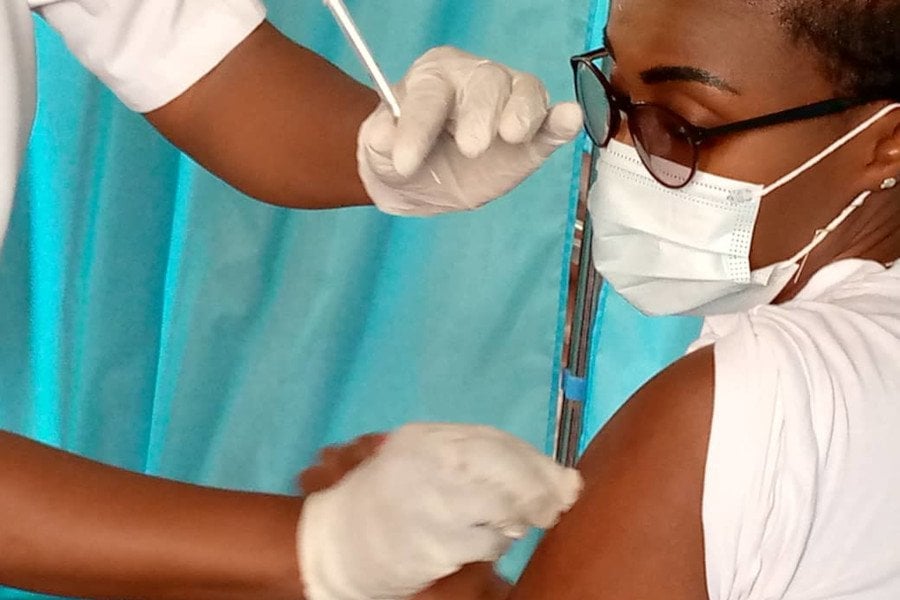
Robust Regional and Country Data Needed to Inform Future GAS Vaccine Design
Researchers at the Medical Research Council Unit The Gambia at LSHTM have published the first data on Molecular Epidemiology of Group A Streptococcus Infections in The Gambia. The MDPI Journal publication highlights the need for robust regional and country-level data to inform future vaccine design.
Group A Streptococcus (GAS) causes a significant morbidity and mortality burden globally, due to a variety of clinical manifestations and subsequent immunologically mediated complications, including acute rheumatic fever (ARF) and rheumatic heart disease (RHD). The highest burden of disease is found in low- and middle-income countries (LMIC) although there may be considerable geographic variability.
Even though there has long been a need for a GAS vaccine, recent advances are favoring its development. In 2018, the World Health Assembly supported GAS vaccine development through a renewed action to control both ARF and RHD.
The team of researchers characterised the emm-types and emm-clusters of 433 stored clinical GAS isolates from The Gambia, collected between 2004 and 2018. The isolates were sub-cultured and confirmed using a rapid latex streptococcal grouping kit, Streptex (Remel) at the MRCG at LSHTM Clinical Microbiology Laboratory, then sent to the Molecular Bacteriology Laboratory Brussels (MBLB) in Belgium, for genotyping.
Among the 433 isolates, 80 emm-types were identified, encompassing 22 emm-clusters. No novel emm-types were identified, but eight new emm sequences were submitted to the American Center for Disease Control (CDC) and were identified as new subtypes. Based on published vaccine ELISA data, 150 isolates (34.6%) were of emm-types included by the 30-valent vaccine, and an additional 141 isolates (32.6%) might be covered by the vaccine because of in-vitro cross-opsonization. Therefore, the potential coverage could be expected to be 67.2%, but may be higher, as 29.6% of the isolates belonged to 37 emm-types which have not yet been examined for cross-opsonization. The results showed a high level of diversity of GAS strains associated with invasive disease, skin and throat infections, as well as non-invasive infections.
The study is joint research work of the MRCG at LSTM Strep A Study Group, a newly established research collaborative network on GAS, including researchers based at the MRCG at LSHTM, and experts based at different universities in the UK and in Belgium. The network aims at contributing to the development of an effective GAS vaccine by characterising the clinical and molecular epidemiology of GAS infections in West Africa and initiating GAS genomic surveillance in the sub-region.
Sona Jabang, Higher Scientific Officer at the MRCG at LSHTM and lead author said, “This first manuscript on GAS genotyping in The Gambia has whet my appetite for scientific research and will contribute to my journey to becoming an independent researcher. My goal is to pass the skills on to the junior scientists and develop a regional network of excellent African researchers”.
Dr Annette Erhart, Malaria Research Coordinator at the MRCG at LSHTM said, “This is a great result for the Strep A Study Group at the MRC Unit The Gambia at LSHTM, and a step towards an effective GAS vaccine and the eventual elimination of rheumatic heart disease in Africa. GAS molecular data have been reported so far by only 5 African countries: Tunisia, Mali, Ethiopia, Kenya and South Africa. The Gambia has started filling such a knowledge gap in West Africa. I am happy to see that four co-authors are promising Gambian female scientists engaged in the fight against the unacceptable burden of GAS in Africa”.
The data from the study, funded by a Wellcome Trust Seed Award, shows the urgent need for complementary studies to assess the potential coverage of the 30-valent vaccine candidate. The researchers note a prospective and comprehensive GAS infection surveillance in The Gambia and in Africa would be highly desirable.
If you enjoyed this article and would like to build a career in global health, we offer a range of MSc programmes covering health and data, infectious and tropical diseases, population health, and public health and policy.
Available on campus or online, including flexible study that works around your work and home life, be part of a global community at the UK's no.1 public health university.
